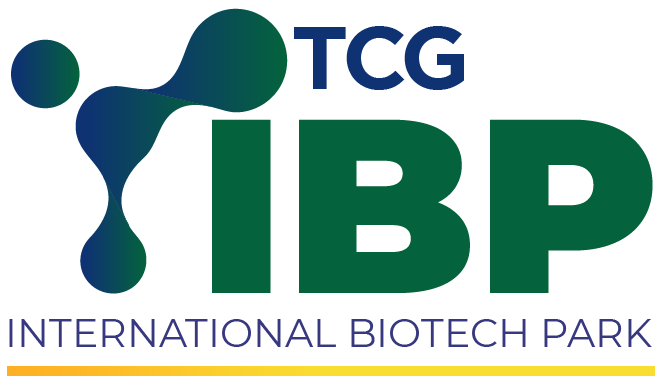The Role of Biotech in Personalized Healthcare in the Past Decade

Over the past ten years, biotechnology has undergone a remarkable transformation, revolutionizing healthcare by introducing personalized and precise medical treatments. This journey has been fueled by advancements in genetics, diagnostics, and therapeutic innovations, which have redefined our approach to wellness and treatment. Let’s explore the profound impact of biotechnology on personalized healthcare in the last decade.
Decoding DNA: The Blueprint of Life
At the heart of this progress lies the discovery of the human genome – the intricate code of life embedded within our DNA. The Human Genome Project, which was completed successfully, marked a significant milestone in this journey, providing scientists with unprecedented insights into the genetic basis of health and disease. This foundational knowledge has paved the way for a more nuanced and personalized approach to healthcare.
Precision Medicine: Personalized Healthcare
Precision medicine is a new and exciting way of providing healthcare that focuses on the uniqueness of each person. Instead of using a one-size-fits-all approach, healthcare providers analyze the genetic makeup of each person to create a treatment plan that works best for them. This approach is more targeted and personalized, which means better outcomes for patients.
Early Detection: Catching Diseases Early
Thanks to advances in biotechnology, healthcare professionals can now detect diseases earlier than ever before. By identifying biomarkers and analyzing biological data patterns, potential health risks can be identified before symptoms appear. Early detection means that treatments can be started sooner, which increases the chances of success and reduces the need for invasive procedures.
Genetic Testing: Understanding Your Genes
Genetic testing has become more accessible in recent years, allowing individuals to learn about their predisposition to certain diseases. This knowledge empowers people to make informed decisions about their health and lifestyle choices. If necessary, they can also take proactive steps to prevent or treat diseases.
Revolutionizing Cancer Treatment: Personalizing Therapies for Genetic Mutations
Biotechnology has transformed cancer treatment by offering personalized therapies. Precision oncology, a part of personalized medicine, tailors cancer treatments based on the genetic characteristics of tumors. By targeting specific genetic mutations that drive certain types of cancer, these treatments aim to be more effective while minimizing the often harsh side effects of traditional cancer therapies.
Increasing Diversity in Clinical Trials: Making Healthcare More Equitable
Clinical trials are an essential part of the drug development process. They help determine whether a new treatment is safe and effective for the target population. However, historically, clinical trials have often lacked diversity, which can limit the generalizability of research findings and lead to unequal healthcare outcomes for underrepresented groups. To address this issue, biotech companies are taking steps to ensure that clinical trials include a more diverse sample of the population. This includes recruiting participants from a range of ethnic and racial backgrounds, as well as diverse socioeconomic and geographic backgrounds. By fostering inclusivity in clinical trials, biotech companies can help improve the representativeness of research findings and contribute to more equitable healthcare outcomes for all.
Accelerating Medical Discoveries: Integrating AI and Biotechnology
Over the past decade, biotechnology has joined forces with artificial intelligence (AI) to accelerate medical discoveries. AI serves as a powerful tool, decoding complex genetic and clinical information. Machine learning algorithms analyze vast datasets, identifying patterns, predicting disease trajectories, and assisting healthcare professionals in making data-driven decisions. This partnership between biotech and AI has accelerated the pace of research and expanded our understanding of personalized healthcare.
Navigating Challenges: Ethical Considerations and Accessibility
The biotech industry’s journey has indeed been marked by a complex interplay of challenges. Ethical considerations loom large as groundbreaking innovations raise questions about the moral implications of manipulating life at the genetic level. Additionally, the intricacies of data privacy and the imperative to ensure equitable access to cutting-edge treatments further contribute to the industry’s ongoing ethical deliberations. Navigating these multifaceted considerations requires a delicate balance between fostering innovation and upholding ethical responsibilities, underscoring the industry’s commitment to responsible progress.
Looking to the Future: The Next Frontier in Personalized Healthcare
As we enter a new decade, biotechnology is expected to make personalized healthcare even more transformative. Innovations in gene editing, targeted therapies, and big data analytics hold the potential to fuel the next wave of breakthroughs in healthcare.
As we approach the end of a decade, it’s a great opportunity to take a moment and reflect on the progress we’ve made over the past ten years. From technological advancements to social and political changes, we’ve come a long way since the start of the decade. It’s important to acknowledge and celebrate all the achievements we’ve accomplished, both big and small.
At the same time, it’s also important to look forward to what’s to come. The next decade holds endless possibilities and opportunities for growth and development. We can anticipate exciting advancements in technology, medicine, and science, as well as progress in social and environmental issues.
So, as we bid farewell to the past decade, let’s take a moment to appreciate all that we’ve accomplished and look forward to the exciting possibilities that lie ahead.
The Role Of TCG-IBP In The Future Of Biotech Research
In shaping the future landscape of biotech research, TCG-IBP plays a pivotal role by offering all the necessary facilities and fostering an environment conducive to scientific breakthroughs. At the core of our commitment to environmental responsibility is the presence of dedicated Effluent Treatment Plants (ETPs) for each building, ensuring that our practices align seamlessly with eco-friendly standards. Safety and compliance are paramount, and we achieve this by collaborating with approved vendors from the Maharashtra Pollution Control Board (MPCB) for the collection of hazardous waste.
To empower the researchers of tomorrow, TCG-IBP provides uninterrupted 24/7 access to power and water supply, allowing for continuous exploration and experimentation. Our competitive Heating, Ventilation, and Air Conditioning (HVAC) systems create optimal working conditions, setting the stage for groundbreaking discoveries. Recognizing the dynamic nature of research, we offer a thoughtful provision for space banking, providing flexibility and scalability in research operations.


